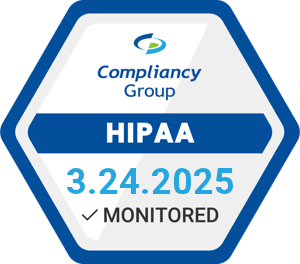The more experience clinical research professionals gain in conducting full or hybrid (onsite/offsite) decentralized clinical trials (DCTs), the more advantages beyond simple economics and convenience for patients they are realizing from the tactic, contributors to the next issue of ACRP’s Clinical Researcher journal suggest.
For example, in her forthcoming column on “Unique Considerations in Designing Decentralized Trials for Digital Therapeutics,” Pam Diamond, MD, cofounder and chief medical officer of Curavit Clinical Research, quotes an expert from the medical device arena as saying that DCTs can increase the quality of data by minimizing the Hawthorne Effect—where individuals modify an aspect of their behavior in response to their awareness of being observed. This phenomenon, also known as “white coat syndrome” in healthcare situations, is thought to be less of a factor when patients are in their home environment.
Diamond goes on to write that, “Fundamentally, a digital therapeutic (DTx) is software rather than a pill or injectable, so there is no distribution or administration of medicines. There are no physical logistics—no shipping, storing, chain of control, cold storage, or biohazards—plus endpoints can be captured within the DTx application itself, making DCTs ideally suited for DTx studies, whether the manufacturer’s goal is gaining regulatory approval or consumer and payer confidence.”
Meanwhile, in a column on “The Ecosystem of Decentralized Clinical Trials: It Takes a Village to Modernize Care,” MaryAnne Rizk, PhD, chief strategy officer for Medable, notes that, when “companies coordinate their efforts to design and execute DCTs, sponsors, investigators, and patients see the benefits. A connected ecosystem of DCT collaborators can streamline operations and data collection and resolve interoperability challenges. With a coordinated approach, the industry will accelerate this new model to make better medicines faster, safer, and more effective for every biology around the world.”
Rizk adds that, to navigate the new waters of DCT delivery, leading organizations are coming together to create a network of “best-of-breed, trial-enablement providers” that “includes contract research organizations, traditional and nontraditional investigator sites—including new retail pharmacy sites—and leading data and technology services providers” responsible for a range of trial support technologies and processes.
Still, Kristin Mauri, solutions services director for Remarque Systems, in her column on “DCTs: Key Considerations for Small-to-Midsized Biotech and Biopharma Companies,” looks at how the DCT trend may seem daunting for companies that feel that “the risks of treading this new territory—an area with complex data management demands and no clear regulatory guidance—outweigh the potential rewards.” However, Mauri adds that if some companies feel that DCTs are outside their comfort zone and budgets, that is not necessarily true.
As just one consideration, Mauri notes how, “untethered from sites, DCTs can recruit from anywhere, which often leads to faster enrollment and fewer screening failures. Further, that same geographic freedom also means fewer sites, thus fewer review boards, potentially lower regulatory costs, and greater flexibility around protocol amendments.”
Further, in his column on “A Hybrid Approach to Decentralized Clinical Trials,” Clincierge Cofounder and CEO Scott Gray writes that, “Moving forward, we must continue to assess the value provided by DCTs in ensuring patient experience and safety remain of the utmost priority. We should continue to build upon what has been learned since the onset of the pandemic. It is up to clinical trial stakeholders to determine the best approach for balancing the needs of patients and their caregivers against the goal of contract research organizations and pharmaceutical study sponsors. Whether that means a decentralized, traditional, or hybrid course, prioritizing clinical trial patients’ health and best interests ultimately encourages higher enrollment, increased retention, and more robust data collection results.”
The June 2022 issue of Clinical Researcher, with these columns and other content touching on DCTs and data analysis for trials, in addition to three peer-reviewed articles, will go online on or around June 21 on the ACRP website.
DCTs are also the focus of a recent whitepaper on Decentralized Clinical Trials: Perspectives for Clinical Research Professionals developed by expert members of the ACRP Fellows and sessions presented at April’s ACRP 2022 conference (such as by thought leaders from Clario and Northwell Health), the recorded contents of which will soon be available in the Online Conference Library.










